Contaminated blood inquiry: Richard Lowry 'wanted to die'
- Published
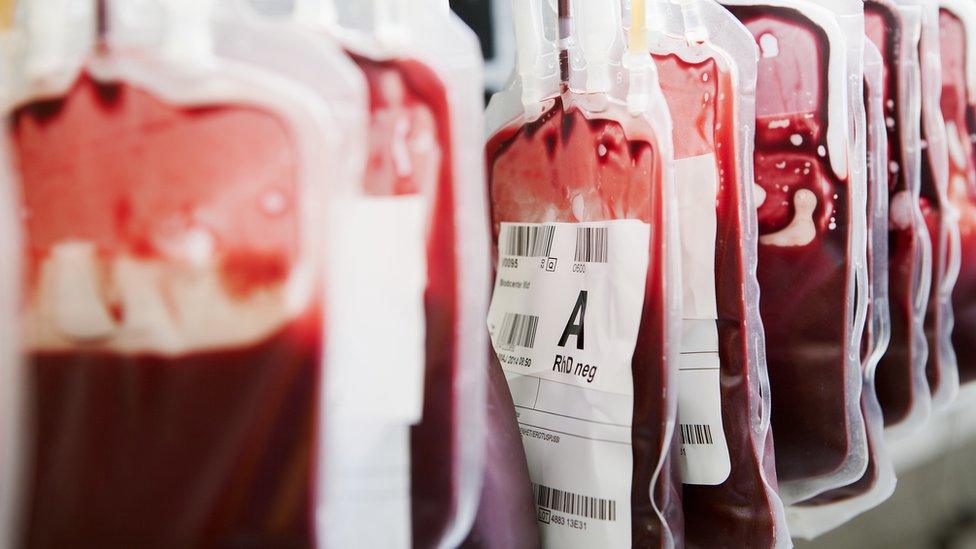
The inquiry is looking at why 4,800 people with haemophilia were infected with hepatitis C or HIV
A woman has given a harrowing account of her devastation at telling her sons their father was going to die.
Sharon Lowry was giving evidence at the Infected Blood Inquiry into what has been called "the worst treatment scandal" in NHS history.
On the final day of witness hearings in Belfast, she spoke of the deterioration of Richard Lowry's health.
He was told he had contracted Hepatitis C in 1991. He died in 2011 from chronic renal failure with cirrhosis.
Mrs Lowry described how, at the end of his life, he was "a skeleton with skin on".
"That's the only way I can describe him," she said. "He had no flesh. He had no muscle."
The inquiry is looking at why 4,800 people with haemophilia were infected with hepatitis C or HIV in the 1970s and 1980s.
With allegations of a cover-up, no-one in government or the NHS has been held to account.
Some people have waited 30 years for a full public inquiry.
'He begged me to kill him'
At times breaking down, Mrs Lowry said towards the end of his life, her husband became depressed, his personality changed and he "shut down".
"He had just given up completely," she said.
"He was so low looking and there was no fight in him."
"He begged me to kill him. He just wanted to die."
Mrs Lowry said she hoped the government would "accept responsibility and liability for what should never, ever have happened".
"Sadly, I feel as if I am having to prove that my husband's life was important enough to matter."
There have been complaints that victims in England and Scotland are receiving more financial help than those in Wales and Northern Ireland.
Northern Ireland Secretary Karen Bradley has written to one victim, saying any decision about financial support for victims was a matter for Northern Ireland's assembly.
Northern Ireland has been without a devolved power-sharing government for more than two-and-a-half years, after the DUP and Sinn Féin split in a bitter row.
Mrs Lowry told BBC News NI she was angry at Mrs Bradley's intervention, describing it as "unhelpful".
What is the scandal about?
About 5,000 people with haemophilia and other bleeding disorders are believed to have been infected with HIV and hepatitis viruses over a period of more than 20 years.
That was because they were injected with blood products used to help their blood clot.
It was a treatment introduced in the early 1970s. Before then, patients faced lengthy stays in hospital to have transfusions, even for minor injuries.
The UK was struggling to keep up with demand for the treatment - known as clotting agent Factor VIII - and so supplies were imported from the US.
But much of the human blood plasma used to make the product came from donors such as prison inmates, who sold their blood.
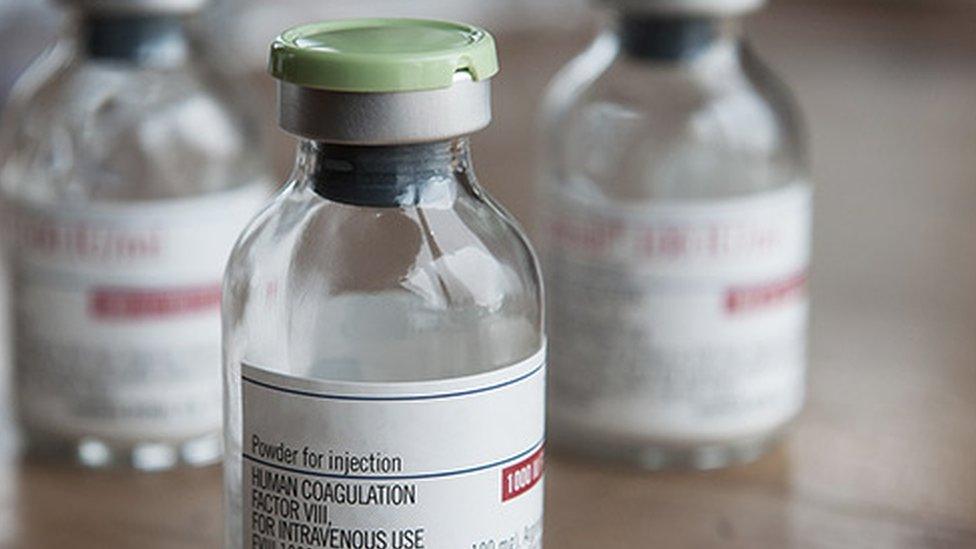
Factor VIII was imported from the US in the 1970s and 1980s
The blood products were made by pooling plasma from up to 40,000 donors and concentrating it.
People who had blood transfusions after an operation or childbirth were also exposed to the contaminated blood - as many as 30,000 people may have been infected.
By the mid-1980s, the products started to be heat treated to kill the viruses.
But questions remain about how much was known before that and why some contaminated products remained in circulation.
Screening of blood products began in 1991.
By the late 1990s, synthetic treatments for haemophilia became available, removing the infection risk.
- Published22 May 2019

- Published21 May 2019
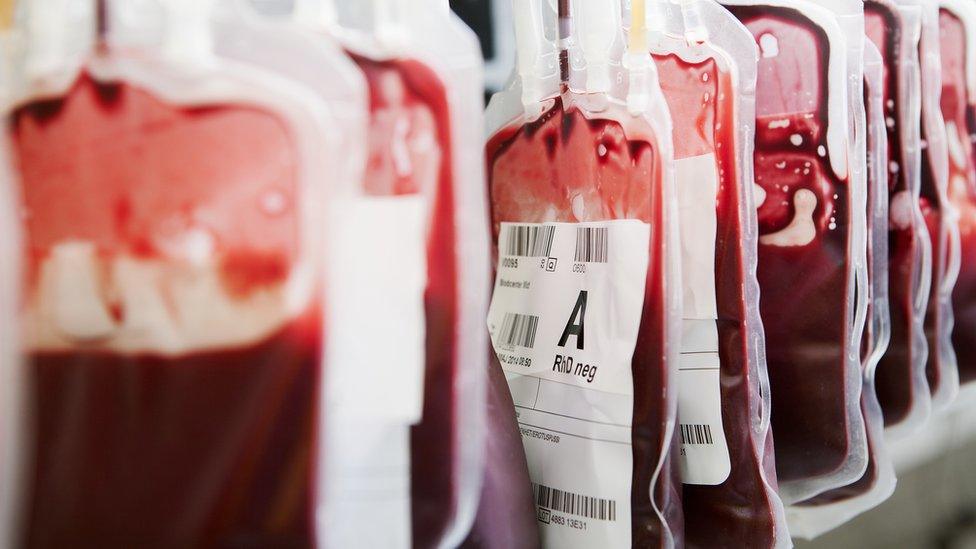
- Published20 May 2019
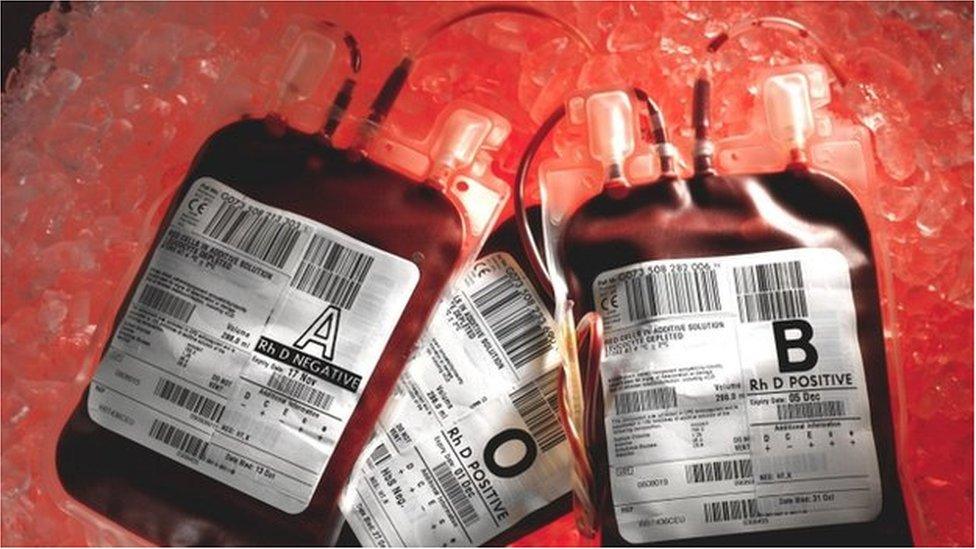
- Published30 April 2019
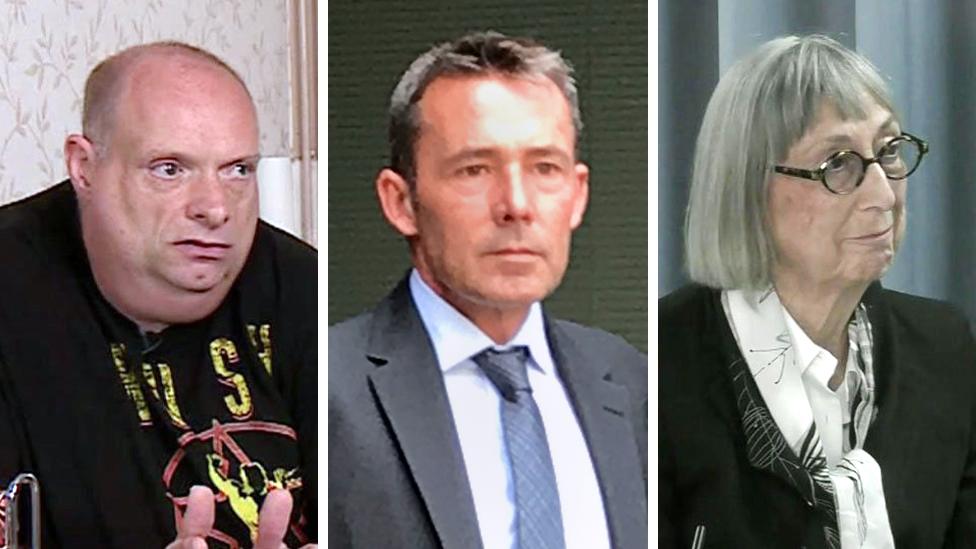
- Published24 September 2018
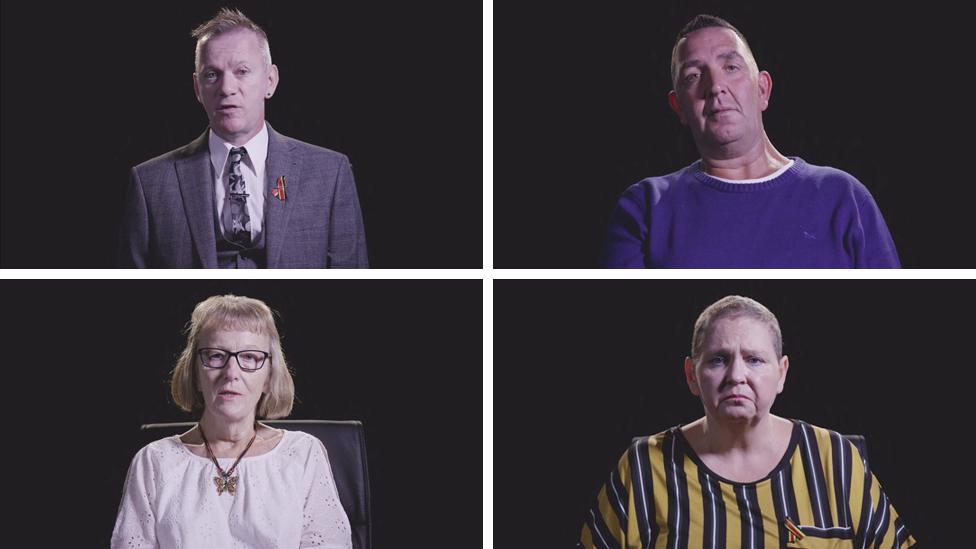
- Published30 April 2019
